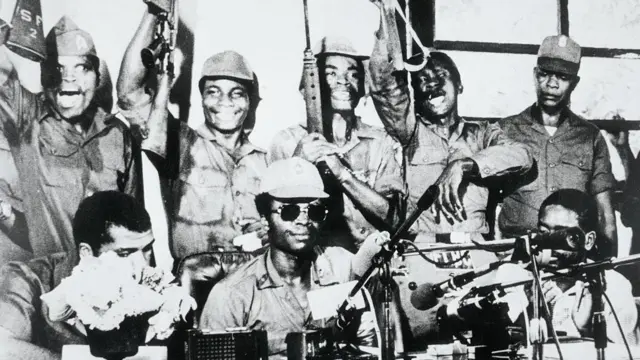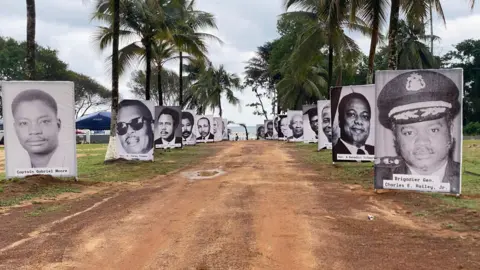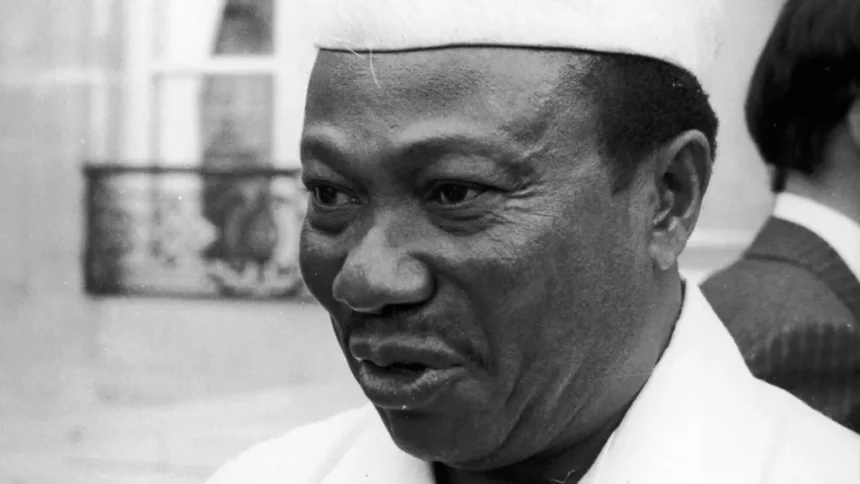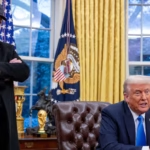Monrovia, Liberia — In a landmark moment for national healing, Liberia 1980 coup has held a symbolic reburial for former President William Tolbert and 13 of his cabinet ministers, 45 years after they were killed in a bloody coup that ended over a century of Americo-Liberian political dominance.
The state funeral, attended by President Joseph Boakai and other dignitaries, took place in the capital Monrovia as part of a long-awaited effort to reconcile the country’s violent past. It follows decades of silence and symbolic remembrance since the April 12, 1980 coup that brought Sergeant Samuel Doe to power Liberia 1980 coup.

Historic Coup That Shaped Modern Liberia
President Tolbert, who had led Liberia since 1971, was murdered during the coup led by the 28-year-old Doe, who accused the government of corruption and ethnic marginalization. Just 10 days after Tolbert’s assassination, 13 senior officials were publicly executed by firing squad on a beach next to the Barclay Training Center army barracks. Their trials were condemned internationally as a “kangaroo court Liberia 1980 coup.”
None of the 14 bodies were ever recovered. Until this week, they were commemorated with a symbolic tombstone. When the site was excavated earlier this year, no remains were found, leaving the events of that brutal morning shrouded in mystery.
“This Is the Beginning of Closure”

At Tuesday’s reburial ceremony, the Liberian government honored the slain officials by presenting their families with national flags and a 21-gun salute. Each victim was remembered with black-and-white photographs along a path to the sea, creating a solemn tribute to their service and sacrifice.
“This is not just a burial; it is a moment of national reflection,” President Boakai said. “A time to reconcile with our history, to heal from our wounds, and to remember with respect and purpose.”
Yvette Chesson-Gibson, daughter of former Justice Minister Joseph Chesson, said: “It has been 45 years and the pain is still fresh. But this is the beginning of closure. Reconciliation is not an event—it’s a process.”
Bindu Dennis, whose father was Foreign Minister Charles Cecil Dennis, added: “Our fathers were murdered in one of the most inhumane acts in political history. But we continue to honor them as fallen heroes.”
Truth, Justice, and the Way Forward

Doe, who seized power in 1980, was himself killed in 1990 during Liberia’s civil unrest. Last week, he too received a symbolic reburial in his hometown—a move that stirred mixed emotions but was seen by some as a necessary part of national healing.
In 2006, Liberia launched a Truth and Reconciliation Commission (TRC) under former President Ellen Johnson Sirleaf. In 2009, the TRC recommended prosecutions for war crimes and human rights abuses. Yet, no trials have been held within Liberia to date, though a few Liberian warlords have faced justice abroad.
President Boakai has recently signed an executive order to establish a special war crimes court — signaling a new chapter in Liberia’s journey toward accountability.
Legacy and Relevance Today
The Tolbert reburial is not only a gesture of honor, but a message to the world that Liberia is confronting its history head-on. As Jarso Maley Jallah, the official overseeing the reburial programme, stated: “There are some things that have happened in our country that we’re not proud of. But we are Liberians, and we must come together to advance our nation.”
More stories on African politics and justice.









